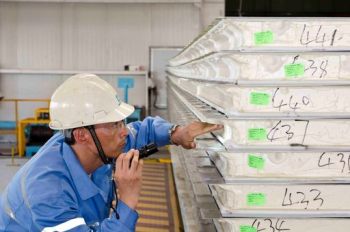Feb 4 2013
Maersk Container Industry calls for tougher enforcement of European environmental legislation designed to protect the Earth’s ozone layer and help prevent climate change.
 SuPo Tec Production
SuPo Tec Production
“We urge the European Commission to ensure enforcement of existing EU legislation regarding insulation foam in reefer containers,” says Peter K. Nymand, CEO for Maersk Container Industry.
“This would benefit the environment, and it would help European innovation and environmental investments pay off,” Nymand adds.
Current EU legislation bans the “import” or “placing on the market” of reefer containers with significant potential to damage the climate and ozone layer. But thousands of such containers nevertheless circulate in Europe’s internal market on virtually the same market conditions as more environmentally friendly reefers.
Supotec, which was developed and patented by Maersk Container Industry (MCI) in 2002, does not damage the ozone layer, nor does it cause significant climate change. As a result, customers and the World Wildlife Foundation WWF laud Supotec for being an environmental step forward.
“This is environmental precaution. It is positive when enterprises, in this case Maersk Container Industry, move ahead of the legislation by developing products and production methods, which in turn make it possible for legislators to demand more from the rest of the industry,” says John Nordbo, head of the Conservation Department at WWF, Denmark.
In MCI’s opinion, EU regulation (EC) No 1005/2009 (formerly 2037/2000) was made with good intentions to prevent damage to the Earth’s climate and ozone layer. Yet in reality, thousands of old reefer containers operate in a legal grey zone in Europe because the EU Commission gives a grace period if the containers are not “placed on the market” permanently.
Therefore, MCI’s competitors, who for the most part use HCFC141b-gas in their foam production, have so far not had to make the same environmental investment as MCI did with Supotec in 2002. This neither benefits European innovation, nor the climate, says MCI.
Each new reefer container from Maersk Container Industry prevents almost 27 tonnes of CO2 emissions compared with HCFC141b reefers. As of 1 January 2013, the total Supotec production had offset CO2 emissions equal to what 441,000 Danish citizens emit in one year.
MCI is the container manufacturing arm of the A.P. Moller – Maersk Group. MCI’s reefer production will increase when a new USD170 million reefer factory in Chile starts production as scheduled in December 2013.